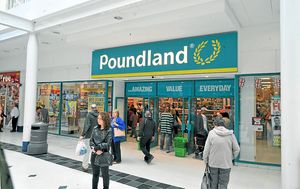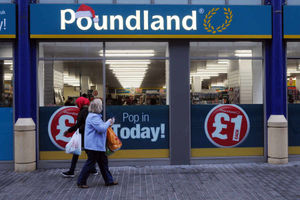Poundland sold: Future of much-loved West Midlands discount chain thrown into uncertainty
Poundland has been sold, with store closures expected and leaving an uncertain future for thousands of staff at the West Midlands discount chain.
Poundland is set for a “restructuring” process after the high street discount chain was sold to investment firm Gordon Brothers.
Poland-based Pepco Group, which has owned Walsall-based Poundland since 2016, said it has completed the sale of the business for a “nominal” fee.

It comes after an auction by Poland-based Pepco to sell Poundland after a sharp downturn in trading over the past year.
Poundland, which has its headquarters in Midland Road, Walsall, has more-than-800 stores and roughly 16,000 employees.
It will be transferred to the ownership of Gordon Brothers, which owns brands including Laura Ashley, as a result.
It is unclear what will happen to the West Midlands head office. Poundland is set to undergo a restructuring plan and said the details will be communicated “in due course”.
The company is expected to seek around 100 store closures and a raft of rent reductions from landlords as part of the process.
As part of the restructuring plan, Pepco is set to retain a minority stake in Poundland.
Stephan Borchert, Pepco Group chief executive, said: “This transaction will strongly support our accelerated value creation programme by simplifying the group and focusing on our successful Pepco business.”
It was reported this week that Poundland is hoping to renegotiate rents on most stores as part of a plan to revive the ailing brand.
The discount retail chain, which has over a dozen stores in the Black Country and also runs outlets in Telford, Newport and Shrewsbury, was reported to have identified around 200 loss-making stores for closure as part of the plan.

A spokesperson for Poundland said this week that no announcement had been made regarding store closures, and described the reports as "speculative".
According to the reports, any potential new owners of Poundland would be required to invest up to £100m to stabilise the business, with the new owners also expected to take on a recovery plan drawn up by Managing Director Barry Williams.
Last month in a trading update, Pepco slashed its full-year earnings forecast for the chain, now expecting between £0m and £16.8m, significantly lower than earlier guidance of up to £59m.
Poundland revenues dropped by 6.5% to 985 million euros (£830 million) for the six months to March, compared with a year earlier.
Poundland was originally hailed as one of the region's biggest retail success stories, having began as the brainchild of father and son market traders Keith and Steve Smith, from Willenhall, who created the business with fellow former market trader Dave Dodd.
The firm opened its first store in Burton-On-Trent in December 1990, but today operates 825 stores in the UK and employs around 16,000 people.
The company was sold to current owners Pepco in 2016 for £610 million.
However Pepco said its efforts to integrate Poundland into it's wider brand had failed, adding that it had become clear over the last 12 months that the plan had not delivered for either customers or shareholders.
Stephan Borchert, chief executive of Pepco, said before today's sale was confirmed: “At Poundland, trading remains challenging, which is reflected in a profit outturn below expectations for H1 and a weaker outlook for the full year.
“Barry Williams, who was reappointed as Poundland managing director in March 2025, and his team are actively driving a recovery plan to help turn around the business by refocusing on its traditional core strengths.”
At it's Capital Markets Day investor event in March, Mr Borchert confirmed the group was exploring "actively exploring separation options" for Poundland - previously described as one of the Midlands biggest business success stories.
Earlier this year the Willenhall-based brand reported poor festive trading, a period which saw sales plummet by 9.3% for the three months to December 31, with like-for-like sales down 7.3%, with weaker clothing and general merchandise sales blamed for the dip.
In January, the company said it was taking “immediate measures” to turn around the performance of the UK discount chain after a sharp drop in sales - including an increase in the number of products it sells for £1 or less as part of efforts to get the chain “back on track”.





